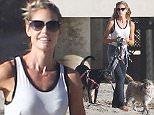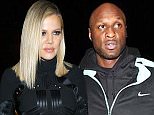Trump in retreat over Muslim database as he says he didn’t suggest mandatory registration – after firestorm of criticism comparing him to the Nazis
- Republican front runner made the comments at an event in Iowa on Thursday night
- He said Muslims would be obliged to sign up at different check points
- Comments have provoked outrage and comparisons to Nazi Germany
- Jeb Bush denounced the proposal as 'abhorrent' and Ted Cruz accused him of violating the First Amendment
- Ben Carson says idea 'would create a pretty dangerous precedent,' John Kasich says remark shows Trump 'trying to divide people'
- Trump retreated later Friday morning, denying he suggested a database
Republican presidential candidate Donald Trump came under intense fire today for saying he would force Muslims to register in the wake of the Paris attacks.
He was branded 'abhorrent' and accused of creating a 'toxic environment' for Muslims after he voiced support for the idea.
Comparisons were immediately made to the registration of Jews in Nazi Germany by one Muslim group.
'I would certainly implement that. Absolutely,' Trump told an NBC News reporter between campaign events in Newton, Iowa, according to video posted on MSNBC.com.
He said Muslims would be signed up at 'different places,' adding: 'It would just be good management... It's all about management.'
Asked whether registering would be mandatory, Trump responded: 'They have to be.'
Scroll down for video

Support: This is the moment Donald Trump voiced backing for a register of Muslims. Asked whether registering would be mandatory, Trump responded: 'They have to be.'

Trump's campaign posted this tweet Friday morning
Trump also told NBC, 'There should be a lot of systems, beyond databases. We should have a lot of systems.'
But he retreated quickly Friday morning, posting a note on his Twitter page that said, 'I didn't suggest a database - a reporter did. We must defeat Islamic terrorism & have surveillance, including a watch list, to protect America.'
That tweet came as Trump was under immediate fire from his own party on Friday.
Jeb Bush, his Republican rival for the White House, called the database suggestion 'abhorrent', Breitbart reported. Ben Carson and Ted Cruz said they oppose religious registries. John Kasich criticized the front-runner for trying to 'divide people'.
'That's just wrong,' Bush added said on CNBC on Friday. 'It's manipulating people's angst and their fears. That's not strength. That's weakness.'
Carson, speaking on the campaign trail in Concord, N.H., called for a national database on 'everybody who comes into this country,' but said focusing on Muslims is wrong.
'I don’t think it’s a good idea to treat anybody differently. One of the hallmarks of America is that we treat everybody the same,' Carson said, adding that picking out individual groups sets aa pretty dangerous precedent, I believe.'
Cruz, at a media availability in Sioux City, Iowa, called himself 'a big fan of Donald Trump's but I'm not a fan of government registries of American citizens.'
He said the move would interfere with the First Amendment.
'The First Amendment protects religious liberty and I’ve spent the past several decades defending the religious liberty of every American,' Cruz said.

On the rack: Donald Trump was on the stump in South Carolina today as rivals from his own party laid into his plan to register every Muslim

Trump at Friday's rally in Spartanburg, South Carolina
Kasich, whose Super PAC is launching a $2.5 million series of attacks against Trump, said the proposal proved the real estate mogul was not worthy of the White House.
'The idea that someone would have to register with the federal government because of their religion strikes against all that we have believed in our nation’s history,' Kasich said in a statement.
'It is yet another example of trying to divide people, one against the other. Donald Trump is unable to unite and lead our country.'
Ibrahim Hooper, national spokesman for the Council on American-Islamic Relations, said he was 'at a loss for words' after hearing Trump's plan, adding: 'What else can you compare this to except to prewar Nazi Germany?'
The Muslim-American group also accused Trump - and Carson, who has compared refugees to 'rabid dogs' - of creating a 'toxic environment'.
The latest comments come less than a week after the deadly attacks on a concert hall, sports stadium and restaurants in Paris.
They have elevated fears of terrorism across the U.S. and prompted calls for new restrictions on Syrian refugees fleeing their war-torn country.
While some of his rivals have been chastised by the president for suggesting that Christian Syrian refugees be given preference over Muslims, Trump has gone further in his rhetoric, advocating new restrictions on civil liberties and enhanced surveillance activities, including inside mosques.
He said earlier this week that the country was 'going to have no choice' but to close certain mosques because 'really bad things are happening, and they're happening fast.'
The first reference to the database idea came in an interview with Yahoo News published earlier Thursday in which the billionaire real estate mogul did not reject the idea of requiring Muslims to register in a database or giving them special identification cards noting their religion.
'We're going to have to - we're going to have to look at a lot of things very closely,' Trump told Yahoo News.
He also suggested he would consider warrantless searches, according to the outlet, saying: 'We're going to have to do things that we never did before.'
Asked by reporters Thursday night to explain his Yahoo comments, Trump suggested his response had been misconstrued. 'I never responded to that question,' he said.
The Council on American-Islamic Relations issued a statement Thursday condemning Trump for what the group described as 'Islamophobic and unconstitutional' comments targeting American Muslims and Syrian refugees.
They also criticized Carson, who on Thursday compared blocking potential terrorists posing as Syrian refugees from entering the U.S. to handling a rabid dog.

The New York billionaire has remained at the top of the Republican presidential field in almost every national poll since late July

Friday's Trump event was a town hall forum at Wofford College

His words were a reaction to debates surrounding Syrian asylum seekers (pictured) and terrorism concerns
'If there's a rabid dog running around in your neighborhood, you're probably not going to assume something good about that dog,' Carson told reporters at a campaign stops in Alabama. 'It doesn't mean you hate all dogs, but you're putting your intellect into motion.'
'By mainstreaming Islamophobic and unconstitutional policies, Donald Trump and Ben Carson are contributing to an already toxic environment that may be difficult to correct once their political ambitions have been satisfied,' CAIR's Robert McCaw said in a statement.
Trump was in Iowa Thursday for a televised question-and-answer session hosted by WHO-TV at the Des Moines Area Community College.
Trump arrived at the interview eight minutes late, forcing hosts to ad-lib as they awaited his arrival live on air.
Many in the audience were former employees of a Maytag plant that shut down in 2007 and the questions focused on economic issues, including how a Trump White House would help low-income workers pay for skills-training necessary to find new jobs.
'Well, one of the things that I see in this country is a lot of people have lost hope, they've lost their spirit, they've lost their mojo, you know, to go out and go to the community college,' Trump responded.
'We can talk economics, we can talk everything, but one of the things is we have to give people their spirit back, we have to give people hope.'
At a rally afterward, Trump again railed against accepting Syrian refugees, professed his love for Iowa and took a few shots at his fellow candidates.
He said Carson's campaign was in 'freefall' and said Sen. Marco Rubio 'never shows up to vote because he's campaigning.'
Before he left, Trump spent about fifteen minutes shaking hands and taking photos on a rope line. He also ordered pizza from Dominos to feed the entire crowd.
The White House has not commented on the plan. The president was in Malaysia when the comments were made and his spokesman was asked a series of questions by travelling White House reporters but none asked about the Trump comments.
-
 The moment suicide bomber detonates explosives in Paris raid
The moment suicide bomber detonates explosives in Paris raid
-
 Exclusive: Moment jihadi's gun jams when he tries to shoot...
Exclusive: Moment jihadi's gun jams when he tries to shoot...
-
 Shocking audio final moments of St Denis female suspect
Shocking audio final moments of St Denis female suspect
-
 ISIS Threatens to Blow Up White House in new video
ISIS Threatens to Blow Up White House in new video
-
 See the incredible moment woman survives Paris gunman
See the incredible moment woman survives Paris gunman
-
 Thief shot in head while holding undercover cop at gun point
Thief shot in head while holding undercover cop at gun point
-
 ISIS threatens NYC in new propaganda video
ISIS threatens NYC in new propaganda video
-
 Video emerges believed to show the Paris attacks mastermind
Video emerges believed to show the Paris attacks mastermind
-
 Lockheed Martin's hybrid airships get the green light
Lockheed Martin's hybrid airships get the green light
-
 Chinese hostage films Mali crisis inside Radisson Blu hotel
Chinese hostage films Mali crisis inside Radisson Blu hotel
-
 Does this audio capture French raid suicide bomber...
Does this audio capture French raid suicide bomber...
-
 Security forces in Mali help hostages to safety after attack
Security forces in Mali help hostages to safety after attack
-
 Massacre in Mali: Bodies lie piled up in pools of blood in...
Massacre in Mali: Bodies lie piled up in pools of blood in...
-
 EXCLUSIVE: Extraordinary selfie of terror mastermind's...
EXCLUSIVE: Extraordinary selfie of terror mastermind's...
-
 'The White House will turn black with our fire, Allah...
'The White House will turn black with our fire, Allah...
-
 Dramatic video captures moment suicide bomber blew himself...
Dramatic video captures moment suicide bomber blew himself...
-
 America's enemies within: How nearly SEVENTY have been...
America's enemies within: How nearly SEVENTY have been...
-
 EXCLUSIVE 'I would rather lose my own life than let someone...
EXCLUSIVE 'I would rather lose my own life than let someone...
-
 BREAKING NEWS: 'Cowgirl' cousin did NOT blow herself up......
BREAKING NEWS: 'Cowgirl' cousin did NOT blow herself up......
-
 Trump in retreat over Muslim database as he says he didn’t...
Trump in retreat over Muslim database as he says he didn’t...
-
 CNN suspends global affairs correspondent over tweet...
CNN suspends global affairs correspondent over tweet...
-
 Father of five arrested in kidnap and murder of girl, 7, who...
Father of five arrested in kidnap and murder of girl, 7, who...
-
 EXCLUSIVE: First footage of Paris attacks shows diners...
EXCLUSIVE: First footage of Paris attacks shows diners...
-
![Anonymous | OpParis [ENG]](http://web.archive.org/web/20151120221839im_/http://i.dailymail.co.uk/i/pix/2015/11/20/12/2E7D6ACB00000578-0-image-m-5_1448021133795.jpg) ISIS dismiss Anonymous hackers as ‘idiots’ for threatening...
ISIS dismiss Anonymous hackers as ‘idiots’ for threatening...













































![Link back: http://www.nylon.com/articles/chloe-grace-moretz-december-january-cover-star \n\nUpcoming bro comedy Neighbors 2 is decidedly feminist: [Seth] Rogan and director Nicholas Stoller [brought in] female writers and [are] taking a very pro-female stance. ¿If any of the women ever feel there¿s something inappropriate, we speak up, and they will never push the boundaries with us¿they¿ve been really respectful,¿ says Moretz. \n\nHer lifetime feminism: ¿My mom was a single mom, so I¿ve been a feminist since birth. I think feminism is about strong women being who they want to be and fighting for equality on all accounts. It¿s not about men being demolished to bring women higher up in the world. I think that¿s incredibly misconstrued.¿\n\nBeing in middle school when her brothers Trevor and Colin came out: ¿The problem is we live in a society where we have to say the words, ¿I¿m coming out.¿ No one should care what your sexual orientation is, what color your skin is, or if you¿re a man](http://web.archive.org/web/20151120221839im_/http://i.dailymail.co.uk/i/pix/2015/11/20/17/2EA55AC000000578-0-image-m-16_1448039141164.jpg)
























































![Can we get the hi-res images from this email added to the cms please?\n\nSophia Moir\nUK Online Showbusiness Reporter\n\nMailOnline\n\nT: +44 (0) 203 61 (+ext)\nE: sophia.moir@mailonline.co.uk\n\nFrom: Joanna Crawley \nSent: 19 November 2015 15:07\nTo: Sophia Moir\nSubject: FW: DAVID BOWIE ? NEW ALBUM / ARTWORK REVEALED / STILLS FROM ? SHORT FILM\nImportance: High\n\n\n\nFrom: Louise Saunders \nSent: 19 November 2015 14:28\nTo: Joanna Crawley\nSubject: FW: DAVID BOWIE ? NEW ALBUM / ARTWORK REVEALED / STILLS FROM ? SHORT FILM\nImportance: High\n\n\n\nFrom: Julian Stockton [mailto:julian.stockton@outside-org.co.uk] \nSent: 19 November 2015 14:25\nTo: Louise Saunders\nSubject: DAVID BOWIE ? NEW ALBUM / ARTWORK REVEALED / STILLS FROM ? SHORT FILM\nImportance: High\n\nHello Louise,\nHope all is well? Just wondered if this David Bowie story and the photos were of interest?\n\nI¿ll give you a call too.\n\nBest wishes,\n\nJulian.\n\nDAVID BOWIE ? NEW ALBUM AVAILABLE FOR PRE-ORDER NOW\n? S](http://web.archive.org/web/20151120221839im_/http://i.dailymail.co.uk/i/pix/2015/11/20/17/2EA5436800000578-0-image-m-285_1448039163219.jpg)










































































































































![Can we get the hi-res images from this email added to the cms please?
Sophia Moir
UK Online Showbusiness Reporter
MailOnline
T: +44 (0) 203 61 (+ext)
E: sophia.moir@mailonline.co.uk
From: Joanna Crawley
Sent: 19 November 2015 15:07
To: Sophia Moir
Subject: FW: DAVID BOWIE ? NEW ALBUM / ARTWORK REVEALED / STILLS FROM ? SHORT FILM
Importance: High
From: Louise Saunders
Sent: 19 November 2015 14:28
To: Joanna Crawley
Subject: FW: DAVID BOWIE ? NEW ALBUM / ARTWORK REVEALED / STILLS FROM ? SHORT FILM
Importance: High
From: Julian Stockton [mailto:julian.stockton@outside-org.co.uk]
Sent: 19 November 2015 14:25
To: Louise Saunders
Subject: DAVID BOWIE ? NEW ALBUM / ARTWORK REVEALED / STILLS FROM ? SHORT FILM
Importance: High
Hello Louise,
Hope all is well? Just wondered if this David Bowie story and the photos were of interest?
I?ll give you a call too.
Best wishes,
Julian.
DAVID BOWIE ? NEW ALBUM AVAILABLE FOR PRE-ORDER NOW
? SINGLE AVAILABLE GLOBALLY FRIDAY NOVEMBER 2](http://web.archive.org/web/20151120221839im_/http://i.dailymail.co.uk/i/pix/2015/11/19/16/2E9AC21100000578-0-image-m-82_1447949646936.jpg)




























































